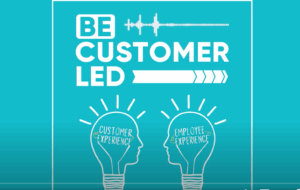
Flickr/IBM Research, licensed under CC BY-ND 2.0.
I was speaking with Mercedes Cardona recently as she prepared to write an article on Quantum Computing for Adobe’s CMO.com. Our conversation went beyond business and marketing and explored the possibilities (and realities) of the impact of Quantum Computing on our world.
Her article is now live. I also wanted to share the deeper conversation we had that didn’t make the cut.
Can Quantum Computing One Day Solve All Of Our Business Problems?
Autonomous cars that can avoid traffic jams. A computer that can create life-saving drugs. A robot portfolio manager that can predict and avoid risky investments. It sounds like Minority Report-type sci-fi, but these advances could become reality sooner than you think.
These are the developments that could be possible with quantum computing, a fast-developing hardware technology that promises computing speed and power that would be an exponential jump over today’s computers.
Mercedes: How much of quantum computing is blue-sky thinking, and how much is already being worked on by businesses? I know banks like JP Morgan and pharma companies like Biogen are already investing in quantum computing, but is it just in the study stage, or should we expect to see it affect business in the near future?
Brian: Quantum computing is much more than blue-sky thinking, in fact it’s this type of thinking that has us moving in this direction in the first place. Many technology leaders such as Intel, IBM, Microsoft and Google are actively investing in quantum development. It’s an incredible feat to process quantum bits or qubits because unlike a classical computer that can only maintain one state at one time (1 or 0), quantum computers can represent a 0 and a 1 at the same time. This is known as a superposition and allows for dramatically increased calculation speed and capacity. At the same time, quantum computers require new chips, hardware, software and algorithms to manage these uniquely complex tasks. Experts believe that we’re 10 years away from a meaningful solution.
Mercedes: Where does quantum hold the most immediate promise: in speeding up AI and data processing (a customer service chatbot that can act like a human, or fintech roboadvisors that can tailor portfolios to a customer’s risk comfort), product development (connected cars, testing new drugs), logistics (companies like UPS and Amazon being able to operate at the speed of consumer expectations)? All of them, or others?
Brian: Because of the complexity of quantum computing and also the depth complexity these systems can manage, some of the initial aims are in the scientific realm, i.e. discovering cures to deadly diseases, exploring solutions for climate change, etc. Also because of scale of quantum, we’ll see advanced cryptography, complex business and computer modeling, sophisticated data analytics, forecasting, automation, AI, financial services, supply chain and logistics.
Mercedes: What hurdles still exist? Are there enough quantum techies to meet demand? Or is it the expense of the computer (is that where cloud services can help)?
Brian: What’s most promising about the path to quantum computing is that industry leaders are opening programs to work together to accelerate development. Computer science largely focuses on classical computing today and with the development of AI and machine learning, they’re making incredible strides. However, quantum experts are in high demand. Classical systems will still exist in the future. But quantum computing will enable new capabilities, scenarios and innovation that will scale with creative and imaginative visionaries.
We’re already on our way. Google, for example, officially announced that it’s achieved quantum supremacy in a new article published in the scientific journal Nature. Google said that its 54-qubit Sycamore processor was able to perform a calculation in 200 seconds that would have taken the world’s most powerful supercomputer 10,000 years.
With Quantum Computing we’ll solve elusive problems but also unleash new applications we haven’t even thought of yet.

Brian Solis | Author, Keynote Speaker, Futurist
Brian Solis is world-renowned digital analyst, anthropologist and futurist. He is also a sought-after keynote speaker and an 8x best-selling author. In his new book, Lifescale: How to live a more creative, productive and happy life, Brian tackles the struggles of living in a world rife with constant digital distractions. His previous books, X: The Experience When Business Meets Design and What’s the Future of Business explore the future of customer and user experience design and modernizing customer engagement in the four moments of truth.
Invite him to speak at your next event or bring him in to your organization to inspire colleagues, executives and boards of directors.
If this post doesn’t look right in your email, please subscribe my new feed instead.





Leave a Reply